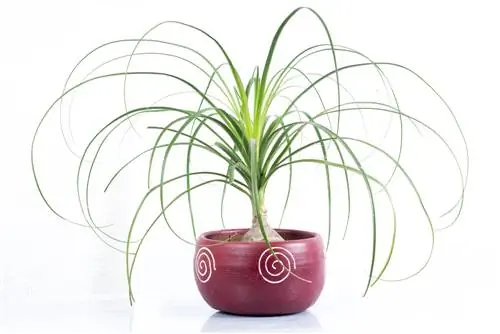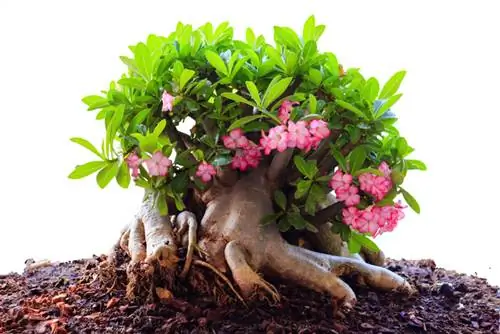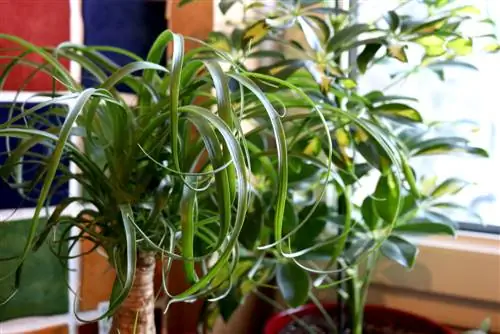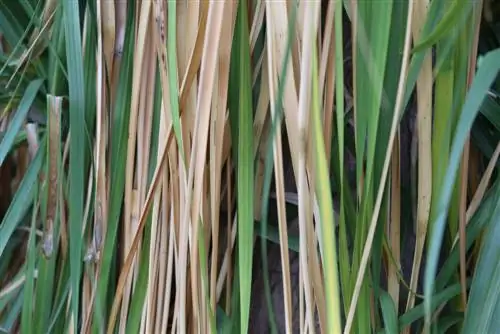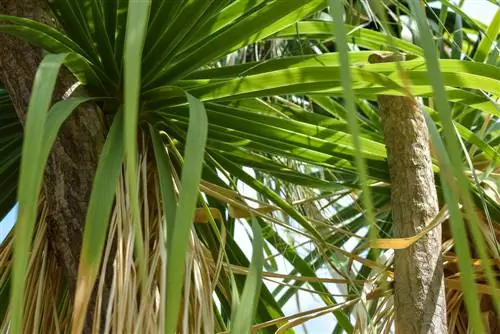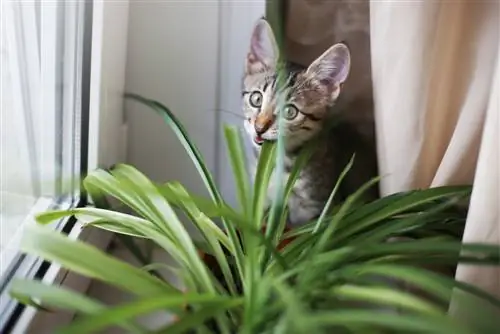- Author admin [email protected].
- Public 2023-12-16 16:46.
- Last modified 2025-01-23 11:22.
Because of its unusual appearance - and because it is very easy to care for - the elephant's foot (Beaucarnea recurvata) is one of the most popular houseplants. But families and cat owners in particular should be careful because the plant is poisonous. You can find out how strong in this article.
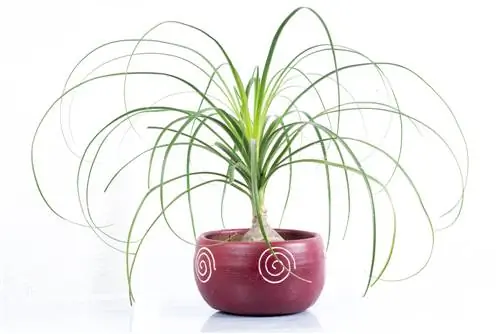
Is the elephant foot poisonous?
The elephant's foot is actually poisonous, but onlyslightly poisonousLike many other plants, this plant also contains so-calledsaponins, which are considered natural Have a fungicide effect and protect against predators. In addition, the elephant foot is particularlypoisonous for cats
How poisonous is the elephant foot?
The elephant's foot is onlyslightly poisonous for adults, but the plant is somewhat more problematic for small children. Although the houseplant only contains moderate amounts of toxic saponins, due to the smaller body size and lower weight of children, these are sufficient forunpleasant symptoms of poisoning Such poisoning is not dangerous, however, unless it is huge Amounts of the plant were eaten. However, this is quite unlikely due to the bitter taste.
Is the elephant foot also poisonous to pets?
The elephant's foot is also particularly poisonous for catsslightly poisonousThe animals like to nibble on the long, narrow leaves, which if consumed in excess can lead to symptoms of poisoning such asVomiting and feeling unwellcan lead. Such poisoning is usually not dangerous. However, you should place the elephant's foot out of reach of your cat and offer the animal harmless plants such as cat grass to nibble on.
What are the symptoms of elephant foot poisoning?
Excessive consumption of elephant foot leads totypical poisoning symptoms like
- Nausea
- Vomiting
- Vertigo
- Fatigue
- Visual problems
Do not induce vomiting or drink milk! Instead, useplenty of waterto flush the toxin from the body andactivated carbon to bind it. Both remedies can also be used on pets.
Tip
Which houseplants are non-toxic?
If you have small children and/or pets, you can also use completely non-toxic houseplants. These include: Kentia palm (Howea forsteriana), mountain palm (Chamaedorea elegans) - both quite similar to the elephant's foot - as well as basket marante (Calathea), money tree (Crassula ovata) or dwarf palm (Chamaerops humilis).

